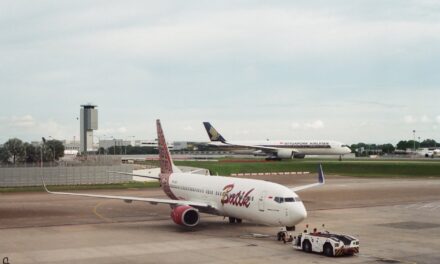Dubai has become a popular destination for teachers seeking to advance their careers. The city boasts a thriving education sector that offers a range of opportunities for teachers of all levels. With a growing demand for quality education, the city has attracted a large number of international schools that offer competitive salaries and benefits packages.
- Teaching Jobs in Dubai
- Salary for School Teachers in Dubai
- Experience and Qualifications Required
- Teaching Benefits in Dubai
- Frequently Asked Questions
- What is the average salary for a high school teacher in Dubai?
- What is the monthly salary for a primary teacher in Dubai?
- How much do CBSE school teachers earn in Dubai?
- What is the salary range for Indian teachers in Dubai?
- What is the salary for an English teacher in Dubai?
- Do teachers in Dubai receive free housing?
The average salary for a teacher in Dubai varies depending on the level of education and experience. According to Indeed, the average salary for a teacher in Dubai is AED 5,116 per month, while a school teacher earns an average of AED 8,179 per month. However, these figures can vary depending on the school and the teacher’s qualifications. The National reports that primary school teachers can earn between Dh11,000 and Dh13,000 per month, while secondary school teachers can earn between Dh11,000 and Dh15,000 per month.
With the high demand for quality education and the growing number of international schools in Dubai, teachers can expect competitive salaries and benefits packages. However, it is important to research individual schools and their compensation packages before accepting a position.
Teaching Jobs in Dubai

Salary for School Teachers in Dubai
According to Indeed, the average salary for a teacher in Dubai is AED 5,116 per month as of May 2023. However, the salary range can vary greatly depending on the school, experience, and qualifications. For instance, top companies like School of Modern Skills and Gulf Indian High School pay their teachers AED 9,749 and AED 9,524 per month, respectively.
In general, private schools in Dubai offer higher salaries than government schools. Teachers with experience and qualifications can earn up to AED 21,000 per month. Additionally, most schools provide tax-free salaries, which means that teachers can save a significant amount of money.
Experience and Qualifications Required
To become a teacher in Dubai, one must have a bachelor’s degree in education or a relevant subject and a teaching certification such as a PGCE. Experience in teaching is also crucial, and most schools require at least two years of experience.
The Knowledge and Human Development Authority (KHDA) is responsible for regulating the education sector in Dubai. Schools must meet certain standards set by the KHDA, and teachers must be licensed by the authority to teach in Dubai.
Teaching Benefits in Dubai
Dubai is known for offering competitive teaching benefits to attract and retain qualified teachers. Most schools provide furnished accommodation or an accommodation allowance, medical insurance, and annual flights home. Some schools also offer additional benefits such as health insurance and transportation allowances.
Teaching in Dubai also offers opportunities for professional development and career advancement. Teachers can work in a variety of schools, including those that follow the US or Indian curriculum, and can teach subjects such as music, geography, mathematics, and Arabic.
In summary, teaching jobs in Dubai offer competitive salaries, benefits, and opportunities for career growth. With a high demand for qualified teachers, there are many teaching vacancies available in private and government schools.
Salary for School Teachers in Dubai
Dubai is known for its high salaries and tax-free income, making it a popular destination for teachers looking to earn a competitive salary. The United Arab Emirates (UAE) government has made significant investments in education, resulting in a growing demand for qualified teachers. In this section, we will discuss the salary range for school teachers in Dubai, including private and government schools, as well as additional pay and benefits.
Private School Salaries
Private schools in Dubai offer some of the highest salaries for teachers in the region. According to Glassdoor, the average salary for a teacher in Dubai is AED 7,500 per month, with starting salaries ranging from AED 4,000 to AED 12,000 per month. Private schools may also offer additional benefits such as housing, health insurance, and flights.
One of the largest private school networks in Dubai is GEMS Education, which offers a range of Indian and British curriculum schools. According to The National, GEMS Education offers competitive salaries starting at AED 8,000 per month for primary school teachers and AED 10,000 per month for secondary school teachers. GEMS Education also offers housing, health insurance, and flights as part of their teaching benefits in Dubai.
Government School Salaries
Teachers in government schools in Dubai also earn competitive salaries. According to Salary Explorer, the average salary for a teacher in a government school in Dubai is AED 12,000 per month, with starting salaries ranging from AED 8,000 to AED 15,000 per month. Government schools may also offer additional benefits such as housing, health insurance, and flights.
It is worth noting that government schools in Dubai typically follow the UAE curriculum, which may differ from the curriculum in other countries. However, some government schools also offer international curriculums such as the British or American curriculum.
Additional Pay and Benefits
In addition to salaries, teachers in Dubai may also receive additional pay and benefits. For example, some schools may offer a housing allowance or provide accommodation for teachers. Health insurance is also typically provided as part of the employment contract.
Teachers in Dubai may also be eligible for end-of-service benefits, which is a lump sum payment made to employees at the end of their contract. The amount of the payment is typically based on the length of service and is calculated as a percentage of the employee’s salary.
Overall, the salary range for school teachers in Dubai is competitive, and teachers can expect to earn a tax-free income with additional pay and benefits such as housing, health insurance, and flights.
Experience and Qualifications Required
Teaching Qualifications
To become a school teacher in Dubai, one must have a recognized teaching qualification such as a Bachelor’s degree in Education or a Postgraduate Certificate in Education (PGCE). Additionally, one must be a licensed teacher in their home country and have a minimum of two years of teaching experience. The Knowledge and Human Development Authority (KHDA) is the regulatory authority for education in Dubai and they require all teachers to have their qualifications attested by the UAE embassy in their home country.
Teaching Experience
Dubai schools prefer teachers with experience in teaching the curriculum they offer. For example, schools following the US curriculum prefer teachers with experience in teaching the same curriculum. Similarly, schools following the Indian curriculum prefer teachers with experience in teaching the Indian curriculum. Additionally, teachers with experience in teaching Mathematics, Arabic, or Science are in high demand.
Working Hours
The working hours for school teachers in Dubai are typically from 7:30 am to 3:00 pm, Sunday through Thursday. However, teachers may be required to work additional hours for after-school activities, parent-teacher meetings, and staff meetings. Some schools may also require teachers to work on Saturdays.
Dubai schools offer competitive teacher salaries, tax-free, and additional benefits such as furnished accommodation, medical insurance, and annual airfare. Some schools also offer health insurance, round-trip airfare for an annual visit home, and a local apartment rental. The salary range for school teachers in Dubai is between AED 9,500 to AED 20,000 per month, depending on experience, qualifications, and the type of school.
In summary, to become a school teacher in Dubai, one must have a recognized teaching qualification, be a licensed teacher in their home country, and have a minimum of two years of teaching experience. Dubai schools prefer teachers with experience in teaching the curriculum they offer and in-demand subjects such as Mathematics, Arabic, and Science. The working hours for school teachers in Dubai are typically from 7:30 am to 3:00 pm, Sunday through Thursday, with additional hours for after-school activities, parent-teacher meetings, and staff meetings. Dubai schools offer competitive teacher salaries, tax-free, and additional benefits such as furnished accommodation, medical insurance, and annual airfare.
Teaching Benefits in Dubai
Teaching in Dubai comes with a range of benefits that make it an attractive option for educators looking to work abroad. Here are some of the benefits of teaching in Dubai:
Accommodation and Housing
One of the most significant benefits of teaching in Dubai is the provision of accommodation. Most schools in Dubai provide their teachers with furnished accommodation, which is usually located near the school. This means that teachers do not have to worry about finding and paying for their own housing, which can be a significant expense in Dubai.
Medical Insurance
Another benefit of teaching in Dubai is that teachers are usually provided with medical insurance. This means that they can access healthcare services without having to worry about the cost. The medical insurance provided by schools in Dubai usually covers both routine and emergency medical treatment.
Additional Benefits
In addition to accommodation and medical insurance, teachers in Dubai are also provided with a range of additional benefits. These can include:
- Tax-free salary: Teachers in Dubai usually receive a tax-free salary, which means that they can take home more of their earnings.
- Annual flights: Many schools in Dubai provide their teachers with an annual flight allowance, which can be used to travel home or to any other destination of their choice.
- Professional development: Teachers in Dubai are often given opportunities for professional development, which can help them to advance their careers.
- Pension: Some schools in Dubai provide their teachers with a pension plan, which can help them to save for their retirement.
It is worth noting that the specific benefits provided to teachers in Dubai can vary depending on the school and the education sector. For example, government schools may offer different benefits to private schools, and schools that follow the US curriculum may offer different benefits to those that follow the Indian curriculum.
Overall, teaching in Dubai can be a rewarding experience, both professionally and financially. With competitive salaries, tax-free earnings, and a range of benefits, it is no wonder that many teachers are attracted to the education sector in Dubai.
Frequently Asked Questions
What is the average salary for a high school teacher in Dubai?
According to The National, the average salary for a high school teacher in Dubai is around AED 9,500-20,000 per month, depending on the type of school and level of experience.
What is the monthly salary for a primary teacher in Dubai?
The monthly salary for a primary teacher in Dubai can range from AED 8,000 to AED 15,000, depending on the school and level of experience.
How much do CBSE school teachers earn in Dubai?
The salary for CBSE school teachers in Dubai can vary depending on the school and level of experience. However, the average salary for a CBSE teacher in Dubai is around AED 8,000 to AED 15,000 per month.
What is the salary range for Indian teachers in Dubai?
The salary range for Indian teachers in Dubai can vary depending on the school, level of experience, and subject taught. However, the average salary for an Indian teacher in Dubai is around AED 8,000 to AED 15,000 per month.
What is the salary for an English teacher in Dubai?
The salary for an English teacher in Dubai can vary depending on the school and level of experience. However, the average salary for an English teacher in Dubai is around AED 8,000 to AED 15,000 per month.
Do teachers in Dubai receive free housing?
Some schools in Dubai provide free housing for their teachers, while others offer a housing allowance. The availability of free housing or a housing allowance can vary depending on the school and level of experience.

























